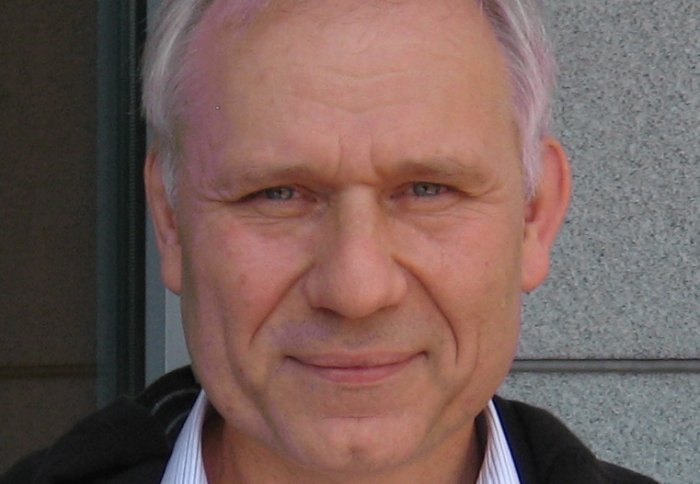Mini profile: Ari Laptev

Professor Ari Laptev (Mathematics) talks about his lifelong passion for mathematics and the fascinating story that led him to Imperial.
Professor Ari Laptev (Mathematics) talks about his lifelong passion for mathematics and the fascinating story that led him to Imperial.
How did you first become interested in maths?
One simple problem was crucial to how I became a mathematician. When I was about 14, I was a member of a ‘mathematical circle’ run by university students and I had been wondering how to write x4+1 as a product of two expressions. After a time, one of the students made a suggestion: “why don’t you add and subtract something?” That was it. It was a crucial moment for me. One year later I entered a school that specialised in deeper mathematical courses and then joined the Department of Mathematics at Leningrad University as an undergraduate.
What did you do next?
After completing my PhD at Leningrad in 1978 my supervisor suggested that I apply for a postdoctoral position in Stockholm. It was very difficult to leave the country but after two years my application was accepted. While I was in Sweden I met my future wife, Marilyn, but was soon ordered to return to the Soviet Union.
How did you come to finally leave the Soviet Union?
I was told that because of my relationship with a foreign woman, I could no longer hold a position at Leningrad University, and so I became a construction worker for five years. Marilyn and I got married and eventually our case for emigration was presented in 1986 by Geoffrey Howe, UK Foreign Secretary, to Edvard Shevardnadze, Soviet Foreign Minister. They met in Helsinki and somehow they allowed me to go!
Can you explain a bit more about your work at Imperial?
My research is in a beautiful area – functional analysis and spectral theory. It’s a way of solving problems inversely. A classic example is if you have a drum or instrument and you record all the tones, can you infer its shape? Inverse problems are actually important for many things, such as finding oil or in cancer technology.
Article text (excluding photos or graphics) © Imperial College London.
Photos and graphics subject to third party copyright used with permission or © Imperial College London.
Reporter
Anthony Wilkinson
Office of the Provost